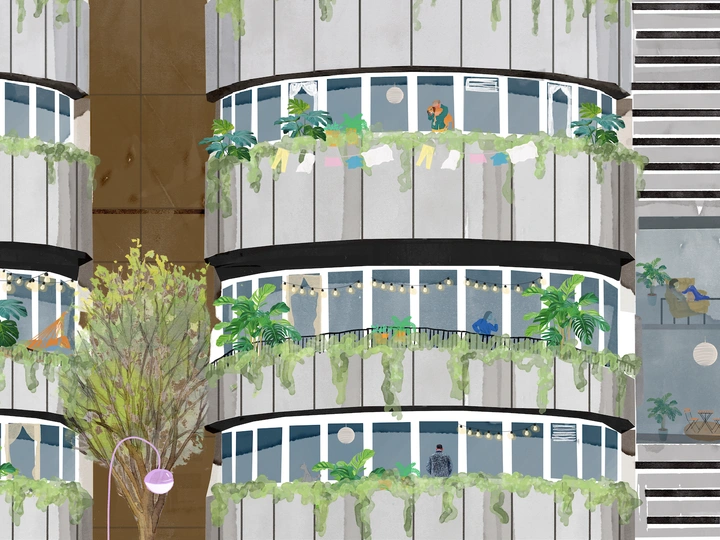Forgotten Icons

Pierre Escobar
L’atelier DEV is an architecture studio founded by Julien Deloffre and Pierre Escobar, working across interior, architecture, territories and research. Based between Brussels, Berlin, and Paris, the practice explores space as both a physical and political matter.
The studio’s work have been featured on ArchDaily, Arch+, New Generations Magazine, and Kontextur, and presented at international platforms such as the Venice Biennale (2014) and Tbilisi Biennale (2020). L’atelier DEV has received multiple awards, including the Azure Award (2025), Paris Design Awards (2022 & 2024), and the Architizer A+ Award (2021).
Pierre Escobar, architect and professor, develops a transversal approach between urbanism, interior architecture, and theory. He previously collaborated with HHF, EPFL, and 51N4E on large-scale urban projects, such as La Défense in Paris and the Port of Strasbourg. Today, as a professor of Interior Architecture at Berlin International University, he connects pedagogy and research through studios on adaptive reuse and interior urbanism.
Julien Deloffre, architect and urban planner, brings over a decade of experience at MSA in Brussels, where he led major public projects such as Place Verte (Charleroi), Place de la Monnaie (Brussels), and the Navez building (Brussels), winner of the Mies van der Rohe Award 2017. His expertise lies in transforming infrastructures and shaping collective landscapes.
Currently, L’atelier DEV explores the following research projects:
- Constructive Contingencies: A research on cuban illegal architecture, shown at Berlin Design Week 2025
- Interior urbanism at the age of architectural recycling: A Bachelor studio about adaptive re-use in abandoned industrial buildings
- Forgotten Icons: rethinking Berlin’s monumental ruins as collective housing, project in the becoming
- Inhabiting the Urban Interior: a PhD project on translating urban theory into interiority to be started soon at TU Delft
Berlin is a city marked by monumental emptiness. Structures like the ICC, Tempelhof, and Teufelsberg stand today in suspension, caught between unresolved pasts and uncertain futures. While these vast buildings remain largely vacant, the city faces an escalating housing crisis.
This project proposes their adaptive reuse as a radical act, not simply to meet housing demand but to reimagine what forms of collective living can emerge within such iconic architectures. Each site, deeply tied to Berlin’s layered histories, invites us to confront uncomfortable legacies while shaping new urban models grounded in care, reuse, and spatial experimentation.
Instead of speculative construction that consumes land and threatens public space, Berlin must learn to work with what already exists. The monumental scale and visibility of these empty icons open opportunities for hybrid programs combining housing with public life, questioning the binary of private and collective.
Through speculative plans, drawings, and collages, this research will explore the latent capacities of these structures and develop spatial narratives that challenge conventional housing paradigms.